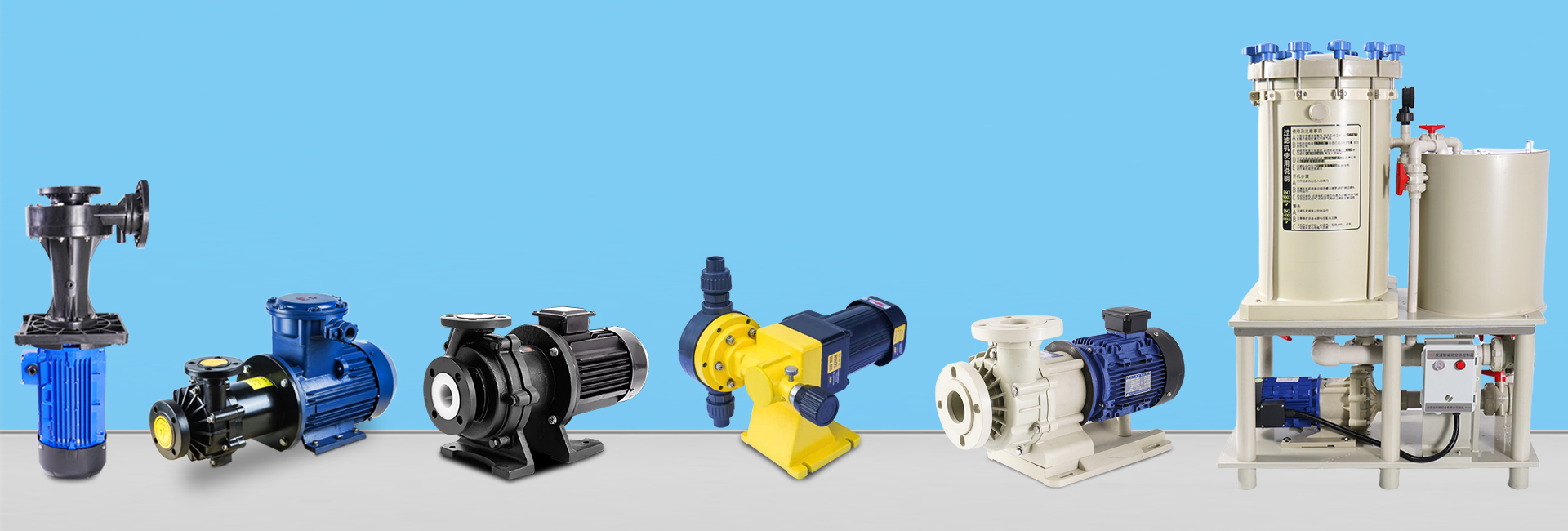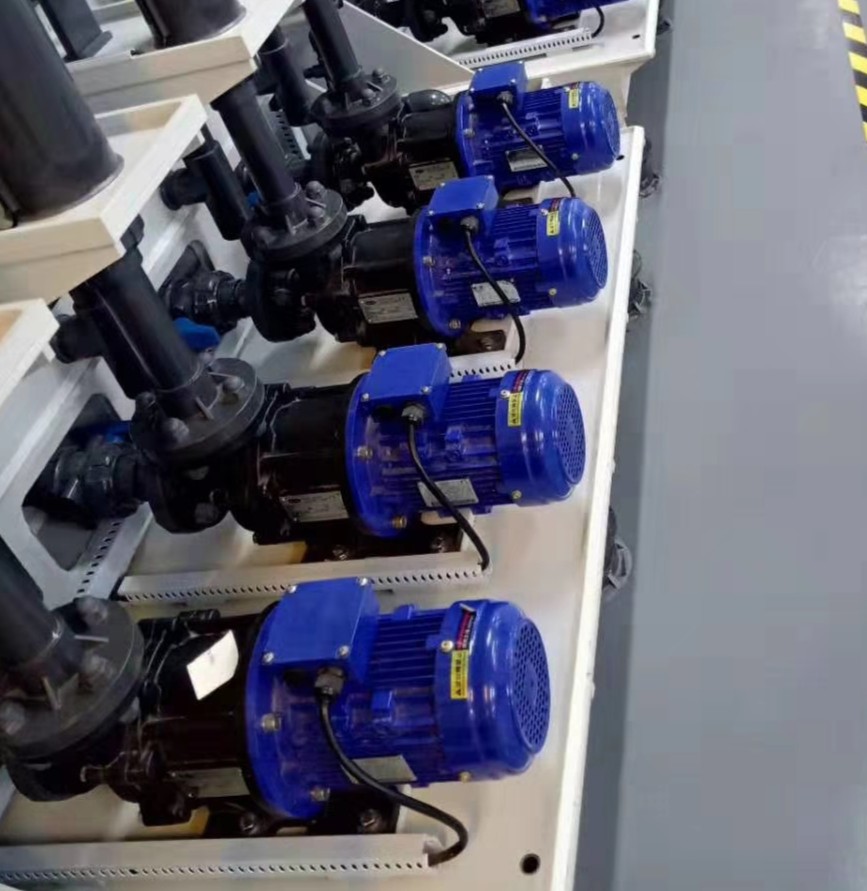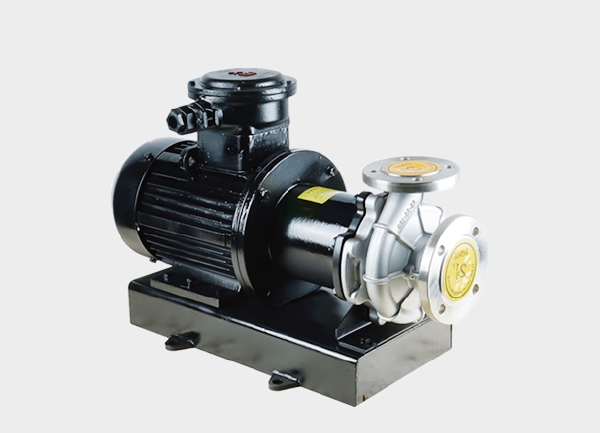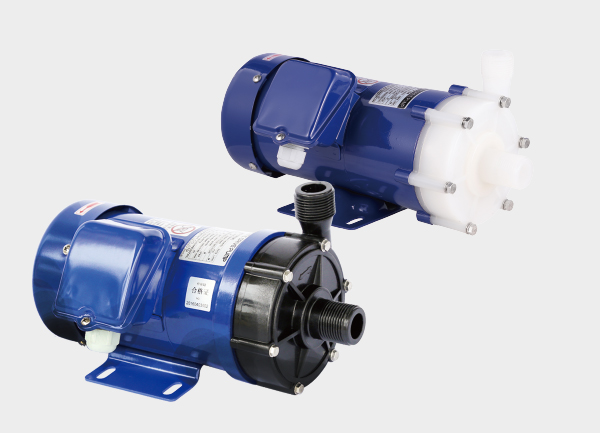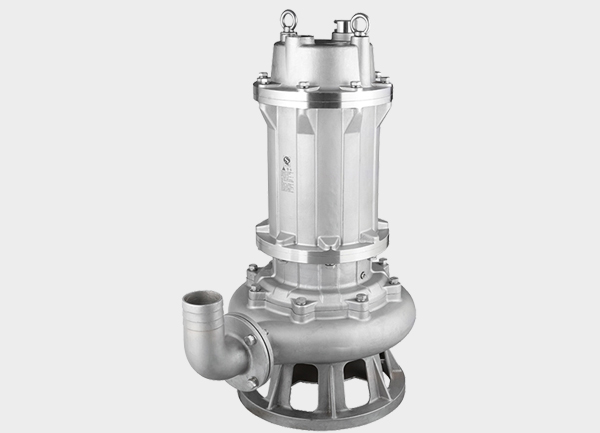In modern fluid transfer systems, safety, reliability, and environmental protection have become critical performance indicators. Traditional centrifugal pumps rely on mechanical seals, which inevitably lead to leakage and frequent maintenance over time. Stainless steel magnetic drive pumps, by adopting magnetic coupling technology, eliminate sealing failures and leakage issues. With stainless steel construction, these pumps offer corrosion resistance, pressure durability, and broad applicability, making them highly reliable in demanding industrial environments.
This article provides an in-depth analysis of the advantages of stainless steel magnetic drive pumps from the perspectives of materials science, transmission technology, industrial applications, and lifecycle economics.
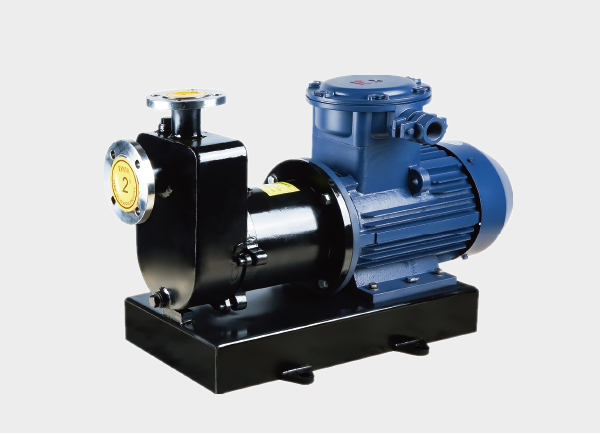
1. Material Advantages: Corrosion Resistance and Strength of Stainless Steel
The superior performance of stainless steel as a pump material comes from the presence of alloying elements such as chromium, nickel, and molybdenum, which enhance both corrosion resistance and mechanical strength:
Corrosion Resistance: Stainless steel forms a passive film in acidic, alkaline, and oxidative environments, preventing degradation.
High-Temperature Resistance: Austenitic stainless steels (e.g., 316L) maintain strength and stability even at elevated temperatures, making them suitable for hot fluid transfer.
Resistance to Intergranular and Pitting Corrosion: Nickel and molybdenum enhance resistance to chloride-induced pitting and prevent localized failures.
👉 This makes stainless steel magnetic drive pumps particularly suited for long-term transfer of low-to-medium concentration acids, alkalis, organic solvents, and heated liquids without rapid material failure.
2. Transmission Advantages: Magnetic Coupling for Leak-Free Operation
At the heart of the stainless steel magnetic drive pump lies its magnetic coupling system:
Operating Principle: Inner and outer magnetic rotors transmit torque through a magnetic field, driving the impeller without direct mechanical contact.
Leak-Free Design: The elimination of mechanical seals removes the common source of leakage in traditional pumps.
Improved Safety: Near-zero leakage risk ensures operator safety when handling toxic, flammable, or volatile media.
Reduced Maintenance: With no mechanical seals to replace, maintenance requirements and downtime are significantly reduced.
This innovation represents a paradigm shift in pump design, aligning perfectly with the industrial trends of green manufacturing and clean processes.
3. Industrial Application Advantages: Cross-Industry Adaptability
Stainless steel magnetic drive pumps are not limited to chemical transfer—they are valuable across multiple industries that require safety and cleanliness:
Chemical and Fine Chemicals
Ideal for solvents and reactive liquids with moderate corrosivity.
Ensures reliable continuous operation.
Pharmaceuticals and Biotechnology
Leak-free design meets GMP and cleanroom requirements.
Suitable for transferring injection liquids and drug intermediates.
Food and Beverage Industry
Stainless steel construction meets food contact safety standards.
Used for juices, dairy products, and flavoring liquids.
Environmental Protection and Water Treatment
Applied in circulating liquids, neutralizing agents, and wastewater transfer.
Reduces risks of secondary pollution.
👉 In this sense, stainless steel magnetic drive pumps are not just pumping equipment but comprehensive fluid safety solutions.
4. Economic Value: Lifecycle Cost Advantages
Although stainless steel magnetic drive pumps require a higher initial investment, their long-term economic benefits outweigh the upfront cost:
Lower Operating Costs: No frequent replacement of seals, reducing spare parts and labor expenses.
Extended Service Life: Corrosion resistance and robust design lower failure rates.
Stronger Production Continuity: Reduced downtime from leakage-related shutdowns.
Environmental Cost Savings: Leak prevention avoids penalties, cleanup expenses, and accident-related losses.
From a lifecycle perspective, stainless steel magnetic drive pumps deliver both safety and cost-effectiveness, making them a sustainable investment.
📌 Conclusion
The advantages of stainless steel magnetic drive pumps lie not only in the corrosion and temperature resistance of stainless steel but also in the leak-free magnetic coupling design. By combining industrial safety, environmental compliance, and long-term economic efficiency, they have become indispensable across chemical, pharmaceutical, food, and environmental industries.

